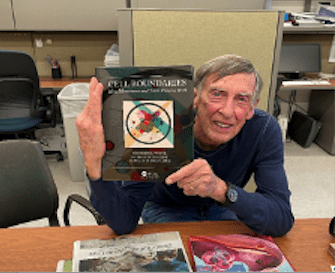Making research relevant
Institute for Clinical & Translational Science is committed to transforming ideas into medical reality

Dr. Moyra Smith has seen successful translational research firsthand. Earlier in her career, the UC Irvine pediatrician worked closely with families across the country that had children with tuberous sclerosis complex, a rare, multisystem genetic disease that causes tumors to form in the brain and other vital organs.
This effort eventually contributed to the mapping of TSC genes and, later, to development of the first therapy to help eradicate tuberous sclerosis-related tumors.
“We went from basic research to the clinic,” Smith says of the collective project. “I played a small role, and a treatment was found. That’s the power of translational research.”
Defined as scientific research that helps render findings from basic science useful for practical applications that enhance human health and well-being, translational research is a growing priority at UC Irvine.
Smith is part of a wide-scale effort through the campus’s Institute for Clinical & Translational Science to develop, nurture and guide research that provides insights and solutions to health issues. Work supported by the ICTS ranges from analyzing the effects of exercise on children to tempering the complications of stroke and traumatic brain injury.
Directed by Dr. Dan Cooper, professor and chair of pediatrics, the ICTS was founded with a $20 million grant from the National Center for Advancing Translational Sciences, part of the National Institutes of Health.
Committed to transforming ideas into medical reality, the institute provides myriad services to campus and community researchers; a Smith-led unit, for example, provides consultation on the design of experiments and data interpretation related to human genetics and genomics.
To broadly highlight opportunities and achievements, the ICTS co-hosts an annual Clinical Translational Research Day at UC Irvine’s Student Center. This year, the June 3 event – open to all faculty, staff and students – offered workshops and poster sessions designed to identify resources and build collaborations between UC Irvine researchers and community organizations involved with public health.
The keynote speaker, Dr. Claire Pomeroy, president of the Lasker Foundation, discussed “HIV Medical Research: Transforming Lives & Shaping World Health.” A longtime advocate for patients with HIV/AIDS, Pomeroy was formerly dean of the UC Davis School of Medicine and that campus’s vice chancellor for human health sciences.
“What’s exciting about Clinical Translational Research Day is meeting all the other investigators,” says Lisa Twachtmann Hinojosa, ICTS manager of research operations and communications. “It’s the day to break out of our silos, network, and build new and fruitful collaborations.”
One clinical researcher benefiting from ICTS support is Dr. Brian Wong, professor of otolaryngology and biomedical engineering, who works with different companies throughout the U.S. to define and develop technologies for treating disorders of the head, neck and upper airway.
“The ICTS is an incredible infrastructure organization at UC Irvine,” says Wong, who was honored as the institute’s 2013 Clinical Translational Scientist of the Year. “It provides a very high profile among UC Irvine and the greater medical device community to create partnerships.”
He cites Ryan Leary, a medical student working in his Beckman Laser Institute lab who’s pursuing a master’s degree in biomedical & translational science.
“The ICTS has helped Ryan develop a surgical planning software program that aims to take the guesswork out of a lot of facial procedures,” Wong says.
Hinojosa notes that such assistance is especially important in today’s sequestration-driven federal research funding environment.
“With looming budget cuts and possible staff losses,” she says, “we urge the UC Irvine biomedical researcher community to learn more about the ICTS, because we may have the support they’ll need.”

